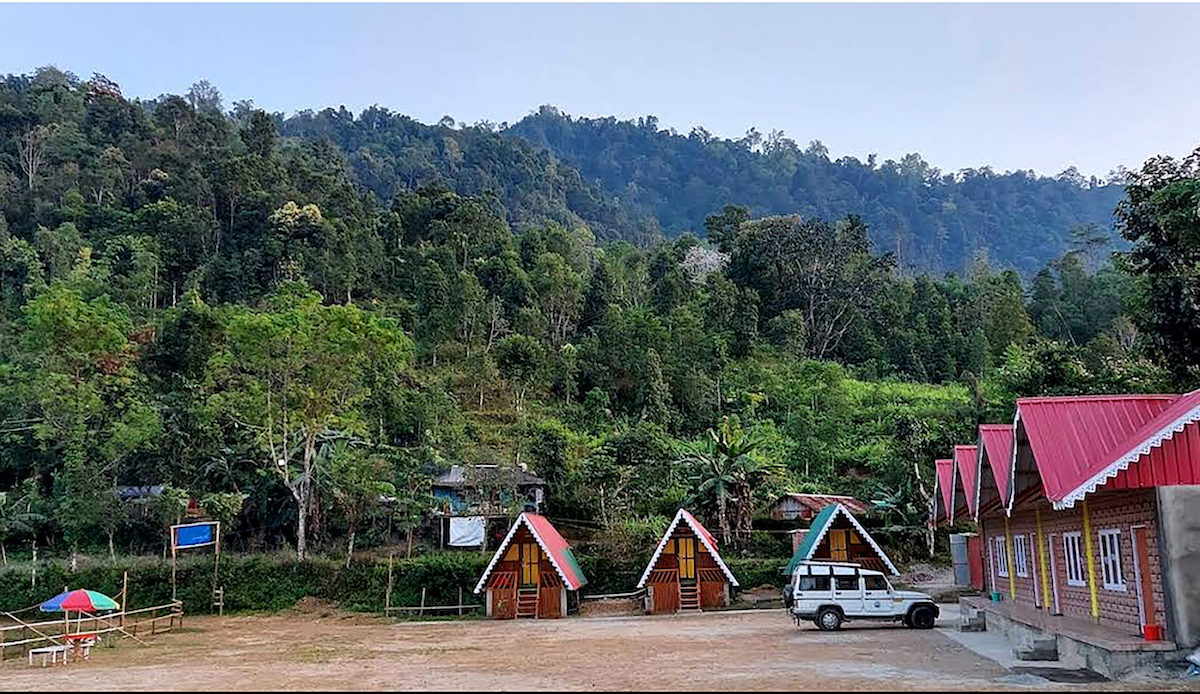Travelers are looking for additional ways to be responsible so that they can have a good influence, not just on the environment but also on the economies of the places they visit. If you want to become a responsible traveler, just follow these easy steps.
[rpi]As a result of technological advancements and other factors that have made travel less difficult and more convenient, an increasing number of individuals are venturing out into the world. Before the new coronavirus impacted the way of life around the world, it was anticipated that by the year 2020, there would be 1.5 billion individuals traveling on a yearly basis. When one considers that traveling can have both a beneficial and a detrimental impact on the environment and the communities that it visits, it is imperative that individuals become responsible travelers and that the tourist industry as a whole practice more responsible tourism.
When do you need to be “responsible” while traveling?
Responsible travel entails considering the social and cultural impacts of your trip and making an effort to leave a positive mark on the areas you visit. Consider yourself a guest at someone’s home and act accordingly to be a respectful traveler or tourist. Check out the tips below and ask yourself, “How responsible am I when I travel?” to find out if you are a responsible traveler. Another phrase closely associated with responsible travel is “responsible tourism,” which means visiting a new place while making an effort to lessen your impact on the local economy, ecology, and culture. While both of these expressions may at first glance seem to refer to the same thing—sustainable tourism—in this case, it is the traveler who is accountable.
1. Support small and family-owned businesses by shopping and eating locally.
When traveling, try to avoid shopping at big-name stores. Look for local or mom and pop stores for your needs, such as groceries and personal care items. This may appear to be a simple task to individual travelers. It will, however, have a significant impact on local businesses and small shops, which frequently lose customers to supermarkets and larger brand stores. The same is true for small-town restaurants and food trucks/stalls. To be a responsible traveler, avoid multinational chain restaurants in favor of local eateries that will provide you with not only a satisfying meal but also a taste of the local culture.
Also, when buying food or souvenirs, try not to haggle too much. Many times, the rates for tourists may appear to be unfair; however, if it is only a dollar or two more than what a local would pay, do not bargain. If you must haggle for a lower price, remember that you must do so to obtain a fair price, not the lowest price for the item. Another thing to keep in mind is that bargaining is not a universal practice in all countries. As a result, research the customs and standard practices in the area you are visiting.

2. Volunteer some of your time, but first do some research.
Volunteering your time, services, or money to worthy causes in the areas you visit is an excellent way to be a responsible traveller. You can donate your time and services by teaching children to swim, surf, or learn a new language, for example. While volunteering to help the poor, needy, or orphaned is a great way to be responsible, you should do some research before getting involved. According to Save the Children, up to 80% of the eight million children in orphanages around the world have been purchased or leased from their parents. More orphans in need means more tourists willing to pay to volunteer or donate to these orphanages, making the business more profitable. Also, make certain that your volunteering does not take jobs away from locals.
3. Avoid the use of plastic.
Another way to be a responsible traveller is to avoid using plastic bags, straws, or containers when you travel; in general, avoid using single-use plastic items. Pack some reusable cloth bags, water filters, reusable bottles, cutlery, straws, and containers with your luggage. Use natural and plastic-free products, such as natural shampoos, soaps, and conditioners, whenever possible. You can also participate in local clean-up drives in the areas you visit to maximize your positive impact on the environment. A quick Facebook search of any drives in your area would be a simple way to accomplish this.

4. Minimize Your Carbon Footprint.
Avoiding flights while traveling is an excellent way to reduce your carbon footprint and travel responsibly. However, if you must fly, try to reduce your environmental impact by taking a direct flight, carrying less luggage, using public transportation (train, metro line, or bus) once you arrive at your destination, walking or cycling whenever possible, and sharing a taxi if you have no other option. You can also reduce your carbon footprint by taking shorter showers and eating less to no red meat.
5. Be mindful of the local culture, customs, and dress codes.
As previously stated, being a responsible traveler entails not only being mindful of your environmental impact, but also being mindful of the local economy, customs, and culture. While many countries do not have a dress code, some (or at least parts of them) do, and we must adhere to these guidelines. Dress codes, for example, must be followed in Islamic, Hindu, Buddhist, and some orthodox countries, particularly when visiting places of worship. While some countries, such as Iran, require women to wear a headscarf, others, such as Thailand, may only require you to be appropriately covered, such as covering your shoulders and knees. Some religious sites may also have their own dress codes for visitors. It is preferable to conduct research before traveling in order to avoid being embarrassed or, in the worst-case scenario, offending anyone. Look up customs in the area you’re visiting, such as greetings, gestures during prayers, and eating etiquette. If possible, learn a few key phrases in the local language to demonstrate that you have done your research and made an effort to become a part of their culture.
6. Select Eco-Friendly Tour Operators and Stay in Eco-Friendly Accommodations.
To be a responsible traveler, you must thoroughly research the companies with which you will be working during your trip. Try to choose a company (preferably a local one) that works with the local community, provides employment, and respects the environment. Another way to be a responsible traveller is to do your research and choose to stay in a sustainable hotel while on your trip. Look for accommodations that have been approved by reputable organizations such as Green Globe and Earth Check, and prefer local establishments over chain hotels. Additionally, ensure that they hire locals, practice sustainable practices such as recycling and water conservation, and give back to the communities.

7. Interact with the locals, do not photograph them without their permission.
A responsible traveller avoids photographing locals while on the road, especially without permission. When visiting other places, remember to respect the locals’ privacy. Before photographing anyone, consider how you would feel if someone took a photograph of you without your permission, whether the photograph would be considered exploitative, and whether photography is even culturally acceptable in the region. If you want to take photos, interact with your subjects to break the ice, and then take a photo of or with them if they are comfortable.
8. Hire a local guide and seek out cultural experiences.
Hire a local guide whenever possible on your trip. This is the best way to learn about the culture, people, and hiking, biking, and sailing spots. Hiring a local guide is also a good way to be a responsible traveller because it helps the local economy. While it is acceptable to relax by the pool during your trip, a responsible traveller goes above and beyond by seeking out local culture experiences. You can do this by hiring a local guide or joining a local tour, as previously mentioned. Visit museums, local markets, restaurants, and meet the locals to broaden your travel experience and knowledge. You are not only enriching your experiences by seeking a deep cultural experience, but you are also transforming yourself into a global citizen.
9. Avoid animal tourism by limiting your wildlife encounters to the wild.
If you plan to take a wildlife tour or go scuba diving, make sure that the establishment offering these packages does not encourage animal touching or feeding and follows sustainable and responsible practices that are in the best interests of the animals. Furthermore, to be a responsible traveler, avoid tours that promote animal cruelty, such as dolphin shows, pictures with tigers or other wild cats, and riding elephants, camels, or horses. You indirectly encourage the capture and ill-treatment of animals when you visit wildlife enclosures, unethical sanctuaries, and parks.
10. Instead of staying in a hotel, consider staying in a village or a home stay.
As previously stated, part of being a responsible traveler is immersing oneself in the local culture while having a minimal or positive impact on the environment. Staying in a village is one way to get a great cultural experience. This type of experience is provided by community-based tourism, in which locals, who are often rural, poor, and economically marginalized, invite tourists to visit their communities and provide overnight accommodations. This type of tourism has given locals the opportunity to earn money by working as land managers, entrepreneurs, service and produce providers, and employees. By choosing this type of tourism, you are helping to support rural, poor, and marginalized communities by investing in these areas. Furthermore, you will have an authentic village experience.
Responsible tourism is essential because it is the only way to protect the environment and support local communities while still enjoying travel. Because the earth is our home and all other humans are like family, it is our responsibility to ensure that our actions have a positive impact on others and that we support one another. Being a responsible traveler may require more effort than being a regular traveler, but it is all worthwhile if you have made the world a better place, even if only slightly.


